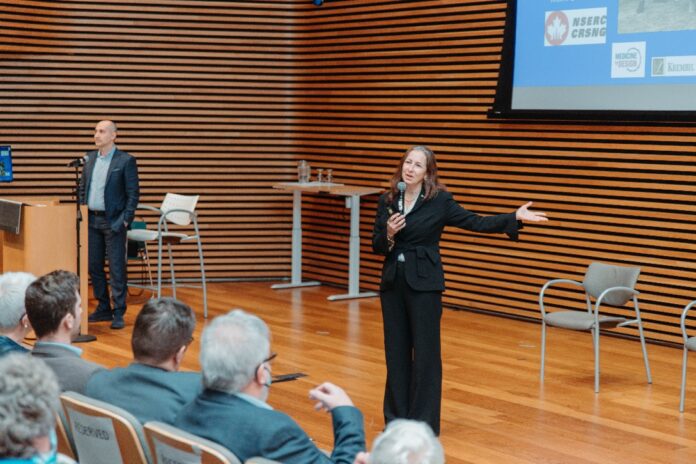What is the future of medicine? What kind of cutting-edge research is currently being done by those in the field? What role does new technology play in shaping and guiding this research?
These are some of the topics that were discussed during the “Let’s Talk the Future of Medicine” webinar, hosted by Let’s Talk Science — a national organization aimed at fostering youth interest in STEM fields across Canada.
To offer some insight and advice on these topics, host Destina Mattrasingh turned the floor over to four scientific researchers from diverse backgrounds to inform students about their own academic journey and the research they are conducting.
The first to speak was Dr. Andrew Pelling, a researcher at the University of Ottawa whose lab focuses on “cultivating curiosity” and bringing together professionals from all backgrounds, including artists, engineers, humanists, and psychologists, among others.
Dr. Pelling’s work spans multiple fields, including investigating how healthy cells transform into tumorous cancer cells, growing artificial tissues, cultivating animal tissues inside plants, and constructing a Twitter-controlled microscope. Additionally, Dr. Pelling spoke of his experience as a co-founder of Spiderwort, a biotechnology company that creates cellulose-based biomaterials that can be used as scaffolding for tissue repair.
Takeaway: Ask questions, apply rigor.
Next up was Dr. Molly Shoichet, a Professor of Chemical Engineering at the University of Toronto. One of the primary focuses of her talk was the various ways in which scientific discoveries can be made, and the role of serendipity in this process.
Dr. Shoichet highlighted two forms of this process: unintentional entrepreneurship and intentional entrepreneurship. She also spoke of her experience as a co-founder of AmacaThera, a biotechnology company that has developed a hydrogel that can be used for longer-lasting delivery of post-surgical pain relief drugs.
Takeaway: Ask “I wonder if” questions.
The third speaker was Dr. Muhammad Mamdani, VP of Data Science and Advanced Analytics at Unity Health Toronto. Given the exponential rise of artificial intelligence (AI) in recent years, Dr. Mamdani and his team decided to use AI to improve medicine.
The central question they asked was “can we predict who will die so we can intervene earlier?”. They created an algorithm that collects data from patients once an hour, and analyzes that data to determine which patients are more likely to die or go to the ICU. As soon as a patient reaches a high risk threshold, the medical team is paged and they see the patient within two hours. Amazingly, this approach produced a 15-20% reduction in mortality!
Takeaway: Perseverance is key. Drive for your purpose is key.
The fourth and final speaker was Dr. Nicole Redvers, an Associate Professor of Epidemiology and Biostatistics and Director of Indigenous Planetary Health at Western University. Her talk focused on re-evaluating Western medicine’s traditional understandings of health, and incorporating an understanding of planetary health from Indigenous belief systems, which views the health of the planet as it pertains to the health of humans.
Despite being viewed as two separate processes for many centuries by anthropocentric Western medicine, Dr. Redvers advocated for integrating both in order to prioritize the health of our planet just as much as we do ours. She also highlighted the troubling ecological footprint of healthcare as a system, noting that if the global healthcare system was a country, it would be the fifth largest emitter of greenhouse gases on the planet.
Takeaway: Planetary health is human health.
Implicit — and often explicit — in all of these talks was one key lesson: the path to scientific discovery is never straightforward! Problems can be approached from all different angles and fields, and serendipitous findings can often lead to great successes in the future. To return to the original question, what is the future of medicine? Seemingly, everything.








































